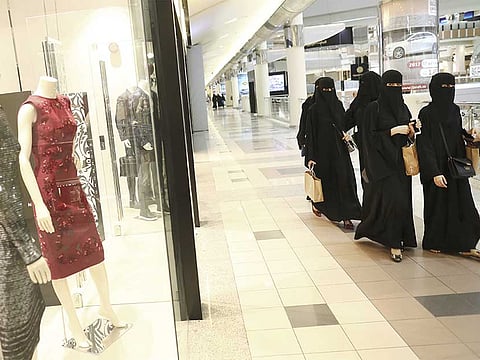Oil price decline becomes a blessing in disguise for GCC economies
Regional banks and businesses face new challenges and opportunities

Dubai: Sharp decline in oil prices over the past two and a half years have come as a blessing in disguise for the GCC economies, that all the regional economies are changing forever, said Abudul Aziz Al Ghurair, Chairman of UAE Banks Federation (UBF) and CEO of Mashreq.
While the contraction in oil revenues have forced governments to rationalise and prioritise spending, all have been adopting measures to augment and diversify revenues through new sources.
AbdulAziz Al Ghurair
“Clearly, governments are exploring fiscal, structural and monetary reforms to live with the new reality of low oil prices. The private sector is also fast adapting through restructuring and cost reductions. Overall, on the positive side, the efficiency levels of both governments and private sector across the region are improving,” said Al Ghurair.
The changes forced on GCC as a result of lower oil prices are expected to increase the share of non-oil sector to the total GDP. Currently in the UAE, the non-oil sector roughly accounts for 70 per cent of the GDP and the country targets to raise this share to 90 per cent by 2030.
“The UAE has been a front-runner in economic diversification in the region, but with the oil price uncertainty looming on the future of GCC, the share of non-oil economic activity has gained momentum with greater participation of private sector,” said Al Ghurair.
Banks adapting fast
The banking and financial services sector in the region are adapting fast to both global and regional economic challenges and new opportunities, Al Ghurair said. Although the banks in the region have remained resilient to the financial crisis and the more recent oil price decline, he said banks are facing sharp increase in cost of doing business from various global compliance requirements.
“Irrespective of the fact whether you are a local, regional or global bank, the overall compliance costs have been increasing. The impact of regulatory costs linked to US FATCA (foreign account tax compliance act), IFRS 9 (International Financial Reporting Standards) and rising capital requirements are universal and banks are challenged to look at innovative ways to make their business models viable under the fast changing regulatory environment,” he said.
Fintech and digital banking opportunities, according to A Ghurair will help to rationalise costs and deliver products and services more efficiently. While a number of banks in the region are fast embracing fintech and digital opportunities.
“Fintech entry is challenging in terms to costs and technology adoption but the opportunities are massive as millennials want their financial service to be delivered on digital platforms of their choice. With that increasingly becoming the norm, for banks in the region, digitisation is no longer an option,” said Al Ghurair.
Unbanked segments
Financial services industry in the region, he said is in the early stages of massive transformation with cashless transactions becoming a norm than an exception and banks individually and collectively seeking to increase customer satisfaction.
“In the UAE, on both these fronts we are making serious efforts under the leadership of UBF. While the UAE Mobile Wallet project aims to eliminate cash transactions with such services extended to tourists and unbanked segments of the society, serious efforts are undertaken to measure customer satisfaction and offer proactive solutions,” he said.
Unethical practices in the past have resulted in some amount of trust deficit in the banking sector Al Ghurair said self-regulation and active involvement of regulators in banking practices and incentive structures are expected to boost people’s trust.
The oil price decline is also changing the ways in which governments, government related entities and private companies approach financing. While a number of privatisation plans are in the pipeline, a number of government owned entities (GREs) from the region are exploring IPO opportunities and debt funding.
“Under the new environment, private sector entities, especially family owned businesses are likely to seek funding through equity capital markets. I believe this is a huge opportunity to expand our capital markets while offering businesses to raise equity financing,” said Al Ghurair.
Sign up for the Daily Briefing
Get the latest news and updates straight to your inbox


